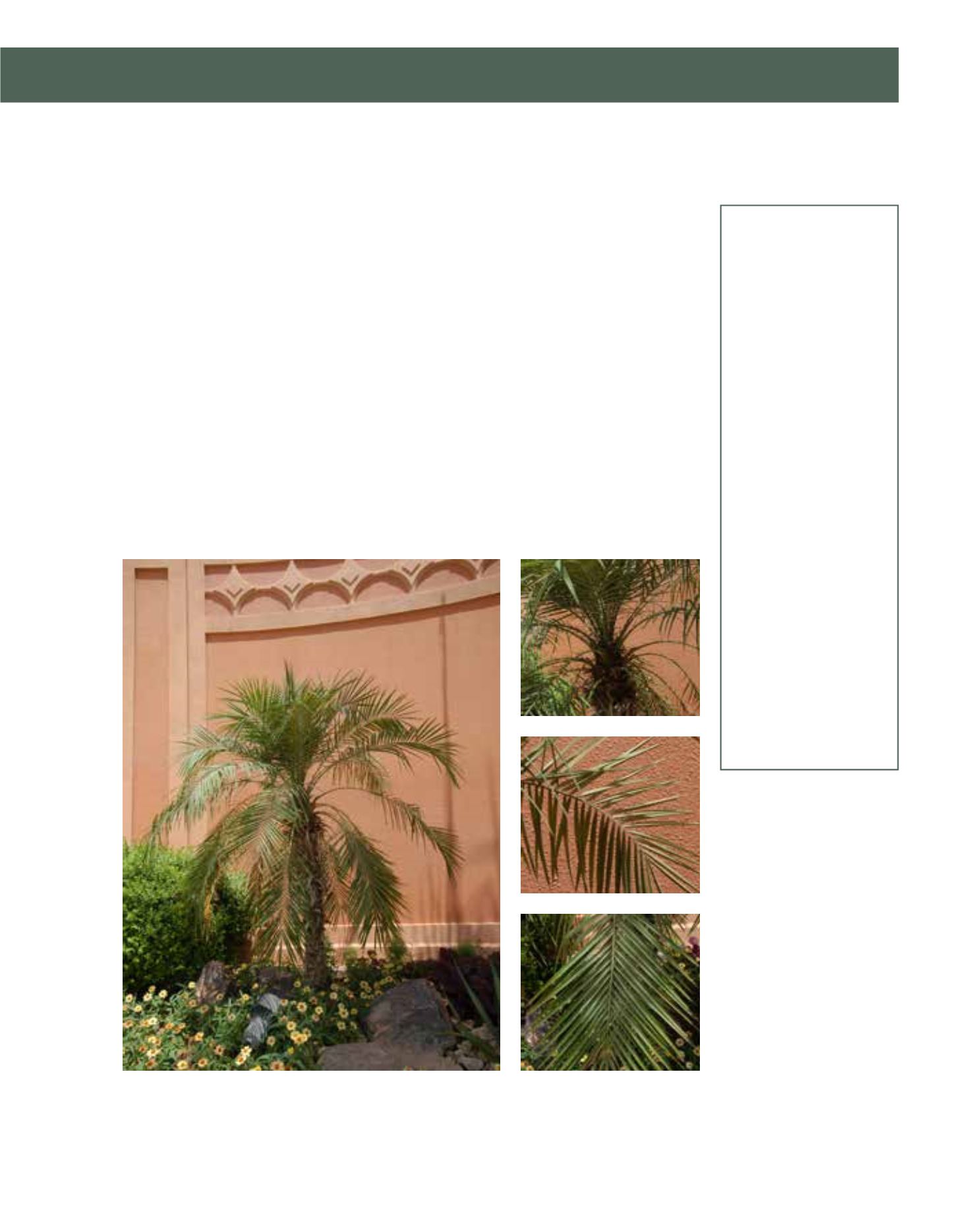

GENERAL
Origin
:
sub-tropical,
tropical
Vigour
:
slow-growing
Humidity
:
semi-humid, very
humid, extremely
humid
Propagation :
sowing and
pricking out,
division
Maintenance :
moderate
CONDITIONS
Urban climate :
vulnerable
Dessication :
vulnerable
Stagnant water :
resistant
Irrigation
:
medium
Salinity/ppm :
moderate (1800
ppm)
Hardiness
:
-3°C
SHAPE
Type
:
palms
Height
:
2 m-5 m
Spread
:
3 m-4 m
Foliage
:
evergreen
FLOWER
Colour
:
pale yellow
Size
:
40 cm
Period
:
March - March
FRUIT
Type of fruit :
drupe (leathery/
fibrous)
Fruit size
:
1.2 cm
Toxicity
:
inedible, fruit
The Pygmy Date Palm, native to southeast Asia, is one of the most commonly used kinds of dwarf
palms. In Arriyadh, it is suitable for small gardens and courtyards, but needs some shade from
the sun. A very long-lived, slow-growing slender tree up to 3 metres tall, this palm likes partial
shade to full sun; morning sun is recommended. It has a dense crown of leaves that are 60–120 cm
long, and pinnate with some 100 leaflets. Each leaflet is 15–25 cm long and 1 cm across, slightly
drooping, and bright green in colour with scurfy pubescence below; the thorns at the base of the
frond are very sharp. The flowers are small and yellowish: the fruit is a 1-cm drupe, resembling
a small, thin-fleshed date. In nature, the trees are usually single-trunked, in cultivation multiple
trunks are often produced. Very frost-tolerant for short periods of time, they are also drought-
and saltwater-tolerant. They like a fertile, well-drained soil with moderate moisture levels and
respond well to regular applications of fertiliser. The trees adapt to most soils and tolerate water-
logging, clay, loam or sandy soils, low in nutrients. Regular irrigation is required. Propagation
is by seed or division. The Pygmy Date Palm is generally pest- and disease-free. It requires little
pruning to develop a strong structure; old and dead fronds should be trimmed below the spines.
Graceful in appearance, P. roebelenii is a popular ornamental plant which looks well by poolsides,
on patios, in shopping malls and office entrances, and is a perfect container plant.
232
Phoenix roebelenii,
Arecaceae
Pigmy Date Palm
















